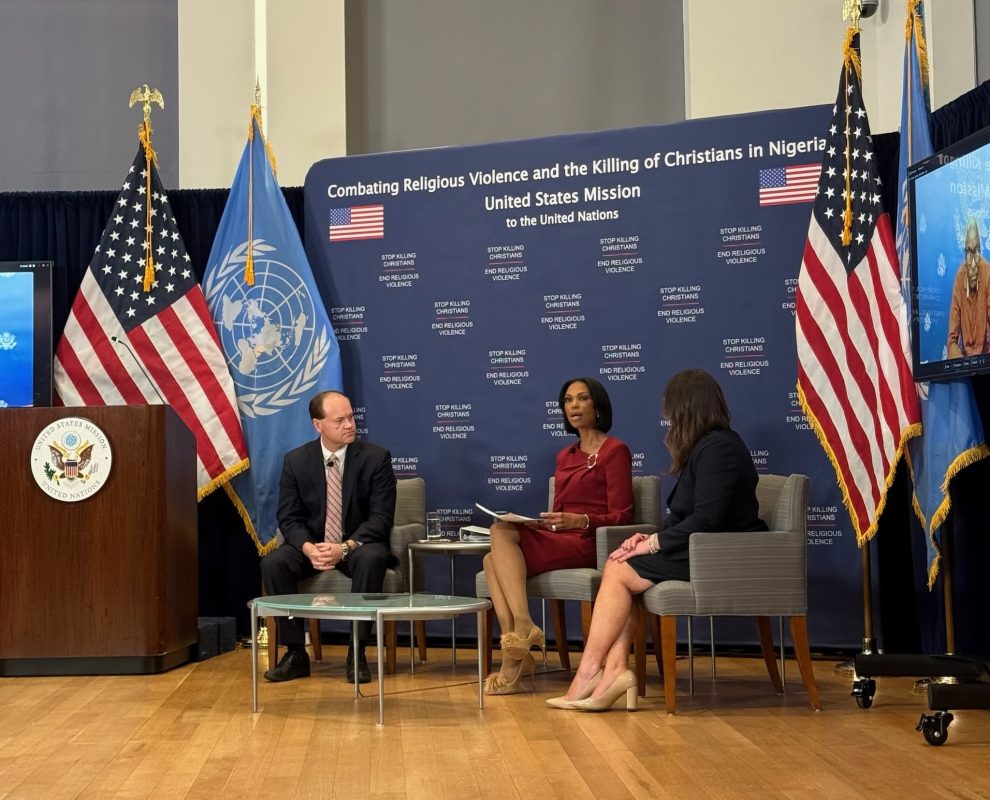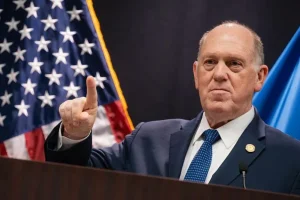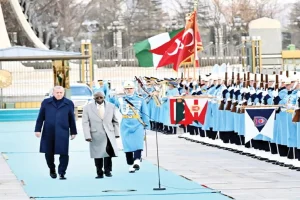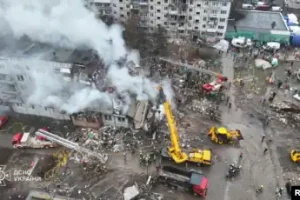Washington D.C. – A US congressional hearing examining Nigeria’s redesignation as a “Country of Particular Concern” (CPC) over alleged religious persecution revealed deep divisions among lawmakers, officials, and witnesses on Thursday.
The hearing, convened by the House Foreign Affairs Subcommittee on Africa, followed President Donald Trump’s controversial decision to reinstate the designation and his subsequent threat of military intervention to stop what he described as the “slaughter” of Christians.
‘Guns-a-Blazing’ Threat Sparks Alarm
President Trump’s rhetoric—threatening to send the US military into Nigeria “guns-a-blazing”—dominated much of the discussion.
Congresswoman Sara Jacobs (D-CA) condemned the threat as “reckless” and illegal, warning that unilateral military action would violate international law and potentially inflame tensions between religious communities in Nigeria.
“Distorting what’s happening into a solely religious narrative erases the real drivers of violence,” Jacobs argued. “Congress has not authorised force in Nigeria to protect Christians.”
Representative Pramila Jayapal (D-WA) echoed these concerns, criticising the administration for bullying a key regional partner rather than engaging diplomatically. She questioned the legality of potential strikes and warned that revoking aid could jeopardise critical health programmes for malaria and HIV.
‘Christianity Risks Extinction’
However, other witnesses painted a dire picture of the situation on the ground. Bishop Wilfred Anagbe of the Makurdi Catholic Diocese in Nigeria delivered a harrowing testimony, warning that “Christianity risks elimination in parts of Northern and Middle-Belt Nigeria within a very short time.”
Bishop Anagbe described a systematic campaign of violence, including mass killings, the displacement of millions, and the use of sexual violence as a weapon of war. He explicitly thanked President Trump for the CPC designation, calling it a “serious, well-founded wakeup call,” but urged that it be followed by concrete actions like sanctions rather than just words.
Subcommittee Chairman Chris Smith (R-NJ) supported this view, highlighting that 89% of Christians killed worldwide are in Nigeria. He accused the Nigerian government of allowing militants to operate with “total impunity.”
US Administration’s Stance
State Department officials sought to bridge the divide. Jonathan Pratt, Senior Bureau Official for African Affairs, acknowledged the “appalling” violence against Christians but stated he did not believe the Nigerian government had been infiltrated by jihadists.
Pratt revealed that the administration is developing a plan to incentivise the Nigerian government to improve security. He noted that Nigerian officials had taken the designation “very seriously” and that a senior delegation was currently in Washington for high-level talks.
“We remain open to working together with the Nigerians, but we also expect the Nigerian government to deliver results on the ground,” Pratt said.
The hearing underscored the complexity of the crisis, with lawmakers like Johnny Olszewski (D-MD) arguing that the issue is not state-sponsored persecution but a severe “capacity problem” that leaves both Christians and Muslims vulnerable to groups like Boko Haram and ISIS-West Africa.





Add Comment